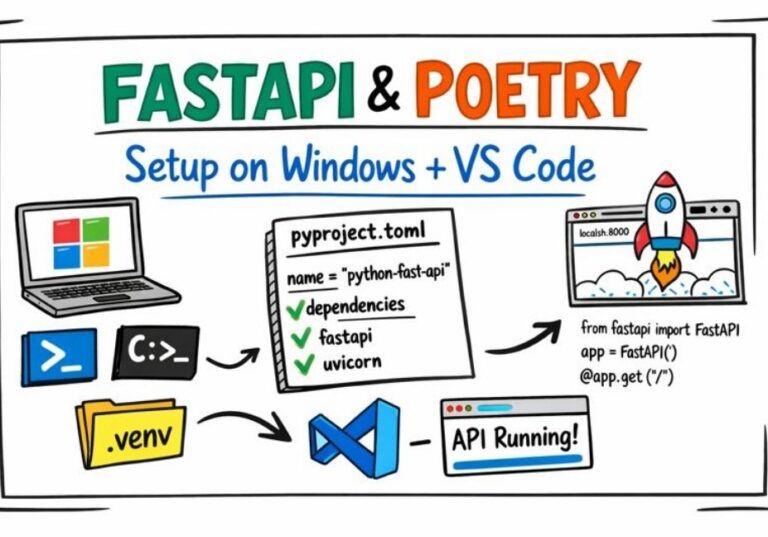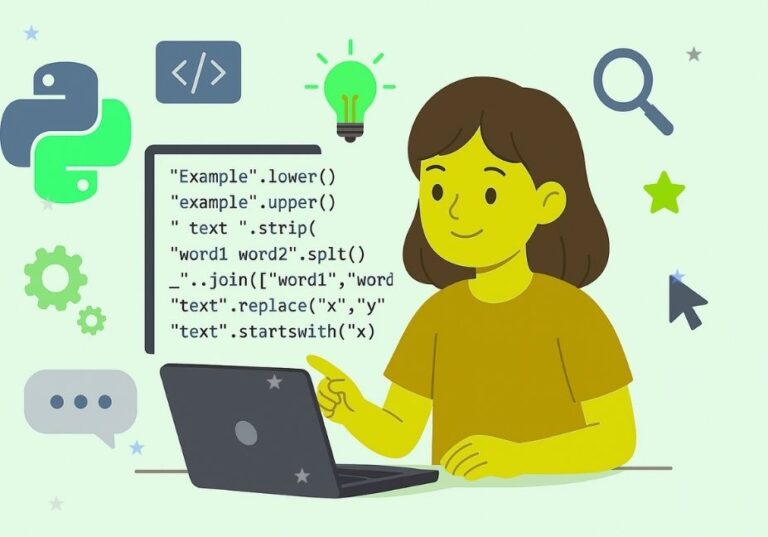Best Guide to SQL Interview Questions and Answers (2025)
Are you preparing for an SQL interview or your coding interview? SQL (Structured Query Language) is an essential skill for data analysts, database administrators, and software developers. To help you succeed, we’ve compiled the most commonly asked SQL interview questions and answers. This guide covers everything from basic queries to advanced database concepts, ensuring you’re well-prepared for any SQL-related job interview.

When preparing for an intermediate SQL interview, it’s important to focus on mastering the fundamental concepts that can help you stand out. One of the most common topics that interviewers discuss is how to create tables. Understanding the data types that can be used in Microsoft SQL Server or other SQL databases is critical for structuring your database efficiently. You will often encounter questions about SQL functions, which are essential for performing calculations on large sets of data, such as COUNT, SUM, and AVG.
Another critical aspect of relational database management systems (RDBMS) is understanding the role of primary keys and foreign keys in ensuring data integrity and establishing relationships between SQL tables. As you dive deeper into SQL, learning how to optimize queries becomes a necessity. Query optimization is often a focus in interviews, especially when dealing with large datasets. Interviewers may ask you how you would improve performance using SQL operators or techniques like indexing and subqueries.
Basic SQL Interview Questions
1. What is SQL?
SQL stands for (Structured Query Language) and is a standard programming language used for managing and manipulating relational databases. SQL syntax is used in various applications, including web development, data analytics, and business intelligence. If you are new, consider taking an SQL course to learn fundamental SQL concepts.
SQL functions allow users to insert, update, delete, and retrieve data efficiently. To truly excel in real-world SQL, practice is essential. Regularly working with outer queries, main queries, and complex subqueries will help you gain hands-on experience. Focus on understanding the different ways to order your results, whether you need to sort data in ascending or descending order, as this is often asked in interviews.
For anyone taking SQL training or preparing for SQL job interviews, it’s important to understand how to handle default SQL values and how functions in SQL can simplify tasks. In your SQL training, you’ll encounter questions that explore how to use SQL operators for comparing and manipulating data. Whether it’s filtering data with WHERE clauses or aggregating results with HAVING and GROUP BY, being able to confidently demonstrate your understanding of these concepts will set you up for success.
2. What are the different types of SQL commands?
SQL commands are categorized into five types:
- DDL (Data Definition Language) – CREATE, ALTER, DROP, TRUNCATE (used to define the structure of database objects)
- DML (Data Manipulation Language) – INSERT, UPDATE, DELETE (used to modify data within tables)
- DCL (Data Control Language) – GRANT, REVOKE (used to manage user permissions)
- TCL (Transaction Control Language) – COMMIT, ROLLBACK, SAVEPOINT (used to handle database transactions)
- DQL (Data Query Language) – SELECT (used to retrieve data from databases)
3. What is the difference between DELETE and TRUNCATE?
| Feature | DELETE | TRUNCATE |
|---|---|---|
| Type | DML Command | DDL Command |
| Rollback | Possible (uses WHERE clause) | Not possible (removes all rows) |
| Performance | Slower | Faster |
| Logging | Generates logs for each deleted row | Minimal logging, improves efficiency |
Intermediate Common SQL Interview Questions
4. What are Joins in SQL? Name different types.
SQL joins are used to retrieve data from multiple tables based on related columns. The different types of SQL programming join operations include:
- INNER JOIN – Returns matching rows from both tables.
- LEFT JOIN (LEFT OUTER JOIN) – Returns all rows from the left table and matching rows from the right table.
- RIGHT JOIN (RIGHT OUTER JOIN) – Returns all rows from the right table and matching rows from the left table.
- FULL OUTER JOIN – Returns all records when there is a match in either table.
- SELF JOIN – Joins a table with itself.
- CROSS JOIN – Returns the Cartesian product of both tables.
5. What is the difference between WHERE and HAVING?
- WHERE is used to filter records before aggregation (works on individual records).
- HAVING is used to filter records after aggregation (works on grouped records).
6. What is Normalization? Why is it important?
Normalization is the process of organizing data in a database to reduce redundancy and improve efficiency. It involves breaking down tables into smaller tables and defining relationships between them. The common normalization forms are:
- 1NF (First Normal Form) – Removes duplicate columns.
- 2NF (Second Normal Form) – Ensures all attributes depend on the primary key.
- 3NF (Third Normal Form) – Removes transitive dependencies.
- BCNF (Boyce-Codd Normal Form) – A stricter version of 3NF to handle anomalies.
Advanced SQL Interview Preparation Questions
7. What is an Index in SQL?
An index is a database object that improves the speed of data retrieval operations. Types of indexes include:
- Clustered Index – Sorts and stores the data in the table based on the index key.
- Non-Clustered Index – Stores pointers to the actual data instead of sorting it.
- Unique Index – Ensures uniqueness of values in a column.
- Composite Index – Created on multiple columns to improve query performance.
8. What are Aggregate Functions?
Aggregate functions perform calculations on a set of values and return a single value. Common functions include:
- SUM() – Calculates the sum of values.
- AVG() – Finds the average value.
- COUNT() – Counts the number of rows.
- MIN() – Finds the minimum value.
- MAX() – Finds the maximum value.
9. What are Stored Procedures?
Stored Procedures are precompiled SQL statements stored in the database that can be executed to perform a specific task. They improve performance, security, and modularity in database management.

10. What is a View in SQL?
A view is a virtual table based on the result of an SQL query. It provides security by restricting access to specific data and simplifies complex queries. Views can be:
- Simple Views – Derived from a single table.
- Complex Views – Derived from multiple tables.
- Materialized Views – Stores query results physically for faster access.
11. What is a Foreign Key in SQL?
A foreign key is a column or a set of columns in one table that establishes a relationship with the primary key of another table. It ensures data integrity by preventing actions that could destroy links between tables.
12. How to Write an SQL Query?
To write an SQL query, follow these steps:
- Identify the required data and tables.
- Choose the appropriate SQL commands (SELECT, INSERT, UPDATE, DELETE).
- Use joins, filters, or aggregate functions if needed.
- Optimize query performance by using indexes and proper query structuring.
|| Also read 10 AI Skills to Skyrocket Your Salary by 55% in 2025
Bonus: SQL Query Examples for Interviews
Find the second-highest salary from an Employee table:
SELECT MAX(salary) FROM Employee
WHERE salary < (SELECT MAX(salary) FROM Employee);
Get the count of employees in each department:
SELECT department, COUNT(*) AS employee_count
FROM Employee
GROUP BY department;
Retrieve duplicate records from a table:
SELECT column_name, COUNT(*)
FROM table_name
GROUP BY column_name
HAVING COUNT(*) > 1;
Delete duplicate records while keeping one copy:
DELETE FROM Employee
WHERE id NOT IN (
SELECT MIN(id) FROM Employee
GROUP BY name, department
);
Conclusion
Preparing for an SQL interview requires mastering both theoretical concepts and practical queries. This guide covered essential SQL interview questions for beginners, aggregate functions, alter table, SQL server interview questions, and data integrity.
For quick revision, you should focus on strong sql skills and use an SQL cheat sheet to review important SQL questions before your interview. By understanding common sql functions, you can confidently tackle SQL-related job interviews and stand out as a skilled database professional.
Finally, to ensure you’re fully prepared for the interview questions asked about SQL, consider building and running queries on SQL databases regularly. Focus on common real-world scenarios where you’ll need to work with outer queries to perform and ensure that your SQL queries are optimized for performance. With regular practice and a deep understanding of these core SQL concepts, you’ll be well-equipped for any SQL-related interview.
Do you have any complex SQL interview experiences or additional questions? Share them in the comments below!







